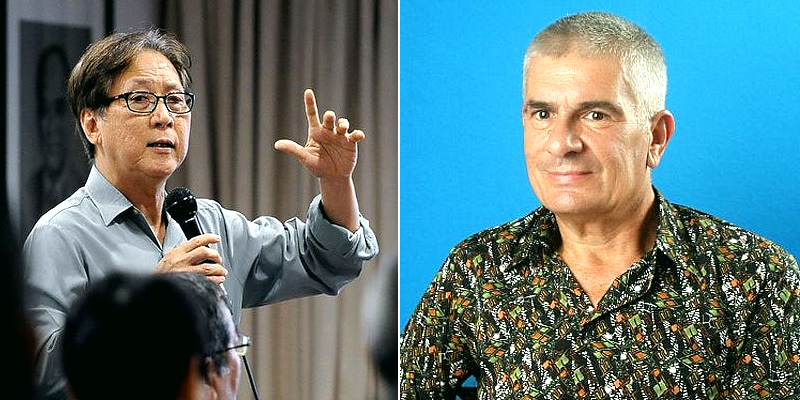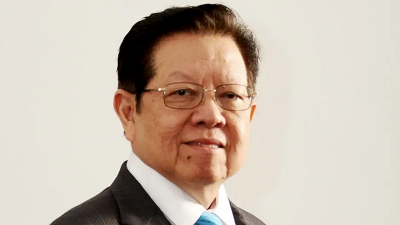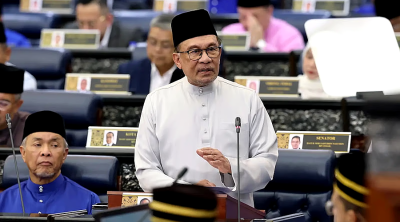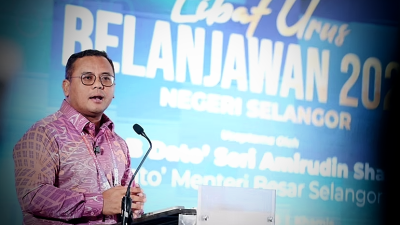
Though many print media are suffering from an extended bout of self-imposed censorship, the English language social media has been replete with feedback comments on the latest announcement by Prime Minister Datuk Seri Anwar Ibrahim to expand the role of the Malaysian Islamic Development Department (JAKIM) in his effort to enhance the country’s dignity and status.
“Previously, JAKIM’s work was to preach, provide training and organize Quran recitation and memorization competitions with state governments, but Jakim played less of a role in drafting the 12th Malaysia Plan and Madani budget.
“I have instructed that the role of the muftis, scholars or figures in JAKIM should be in line with this development so that their input can be beneficial and can raise the dignity and status of the country,” he said in a speech at a national recitation and Quran memorization competition in Butterworth. (Bernama)
Seen by critics as opportunistic and born out of the desperation of the Pakatan government ahead of the looming state elections, the move raises questions and issues largely ignored by politicians, think tanks, the media and other key stakeholders.
JAKIM’s current responsibilities include looking after the welfare of the ummah, regulating the interpretation of Islam that strays away from Ahli Sunnah Wal Jamaah, issuing fatwas relevant to the federal territories, and regulating and overseeing halal issues.
There has also been a change in JAKIM’s organizational reporting. Previously JAKIM reported to the minister for Islamic affairs within the prime minister’s office. Now JAKIM reports to the Selangor Sultan Sharafuddin Idris Shah,who chairs the Majlis Agama Nasional under the conference of rulers.
This is a very significant change as the responsibility for JAKIM is no longer under the purview of the executive government, but the nation’s rulers.
Here are some other key considerations on JAKIM that need to go into a much needed national discourse on JAKIM and its proper role in the national economy.
■ Among government agencies, JAKIM, since its establishment in 1997 is by some measures the most favored beneficiary of the annual Malaysian budgetary process.
In 2018 taxpayers were contributing RM810 million to JAKIM’s operating budget and this raised concerns as it had ballooned from RM582 million in 2011.
Since then, allocations for managing Islamic affairs have increased every year, from RM1.2 billion in 2019 to RM1.3 billion in 2020, RM1.4 billion in 2021 and RM1.5 billion in 2022.
■ JAKIM’s designated mandate and TOR in the past are to be singularly and specifically confined to religious affairs.
■ Although a religious agency to cater to the Muslim population like other government agencies, JAKIM already provides inputs into national development planning and the budget.
■ The agency has little or no expertise in economic planning.
■ Kelantan and Terengganu in which religious leaders and organizations can be considered to have played the key role in socioeconomic development since independence have remained the poorest and least developed states in the Peninsula.
The staff at JAKIM are primarily educated in Islamic studies, rather than economics. Thus, there will be an Islamic orientation around the advice given.
The development of Islamic economy as a discipline is still in its infancy. There are no country Islamic economic models to look at and learn from.
In addition, in areas where JAKIM has been involved in commercial activities, there have been allegations of corruption going back to 2020, which have not been fully answered.
The major question from reviewing JAKIM above is whether the organization is actually technically and scholarly equipped to perform the role that Anwar has planned for them.
Another issue related to JAKIM is the very definition of what the concept of Madani means in economics.
As yet there are no scholarly papers or models available to structure any future planning. Does this mean that by default JAKIM will be left to define the economic tone and content of Madani?
What can be expected with JAKIM’s enhanced role in national development planning
Not only is there likely to be little value added in the economic planning machinery and process, but there is also the danger that new political and religious cronies and distributional coalitions will piggyback on JAKIM’s enhanced role.
Examples could include a push for Madani-related big ticket procurement contracts in budgets in education, sociocultural ministries, GLC., etc.
This could be the tip of a costly iceberg to be paid by all Malaysian taxpayers.
This development at the federal level could become a role model and set the trend for Islamization of state budgets and economy.
The larger impact on the national economy and society could include:
■ Religious agenda will bring falling competitiveness especially among Muslims.
■ It will further divide Malaysians and introduce new distortions and inefficiencies into development planning and implementation.
■ Outflow of local and foreign investment.
■ Outflow of innovative human resources.
Conclusion
The six principles of Malaysia Madani are sustainability, prosperity, innovation, respect, trust and compassion.
This will not take place with JAKIM at the forefront of economic planning.
Like Islam Hadhari before, which failed in translating lofty principles into achievement, we expect the same will happen with JAKIM at the helm of Madani Malaysia, whether in economics or in other sectors, if its mission is allowed to stray away from which it was originally established to accomplish.
Dollah Badawi’s leadership of the country was during a period marked by a benign domestic and international setting.
In particular, local and foreign investors and businesses had given the nation’s socioeconomic minuses a lower priority in their decision-making because of the relatively calm racial and religious environment.
This time round, Malaysia’s economic setting and future is troubled, challenging, and requires the inputs and even stewardship of committed economic players with proven track records to tackle successfully.
There are no lack of economic councils and committees recruited to provide policy guidance and advice to the various ministries as well as at the national level.
In addition, a plethora of think tanks, business organizations, NGOs and concerned citizens have provided suggestions and proposals for the Malaysia Plans and budget exercises without fail, year after year.
With JAKIM being called to play an active role in the development planning and budget setting process, all these organizations and individuals may feel that their inputs are likely to be marginalized or ignored.
A calibration is needed if the prime minister’s good intentions and objectives to realize his Malaysia Madani vision in the economic sphere is to succeed.
Any formal addition of JAKIM into the nation’s economic policy approach has deep implications to the very structure of the executive government and the nation’s democratic system.
Once the convention exists, it will almost be impossible to change this restricting of the government’s policy development process.
One has to ask the question if these implications have actually been considered in depth?
One must also be concerned whether this restructuring of the policy-making process will embed “Ketuanan Islam” within it, due to the statutory mission of JAKIM.
JAKIM’s mission is clearly set out to ‘strengthen the governance of Islamic Affairs through the compassionate approach to the well-being of the Ummrah.’
If there is one mission that JAKIM can contribute to enhance the self-respect, dignity and status of the nation, this should be in the fight against corruption, of which the agency has been a long-time spectator, and possibly even a participant in rent-seeking and other shady practices.
(Lim Teck Ghee is a former senior official with the United Nations and World Bank. Murray Hunter is an independent researcher and former professor with the Prince of Songkla University and Universiti Malaysia Perlis. Datuk Ramesh Chander is former chief statistician of Malaysia and a senior statistical adviser at the World Bank in Washington, DC.)
ADVERTISEMENT
ADVERTISEMENT








































